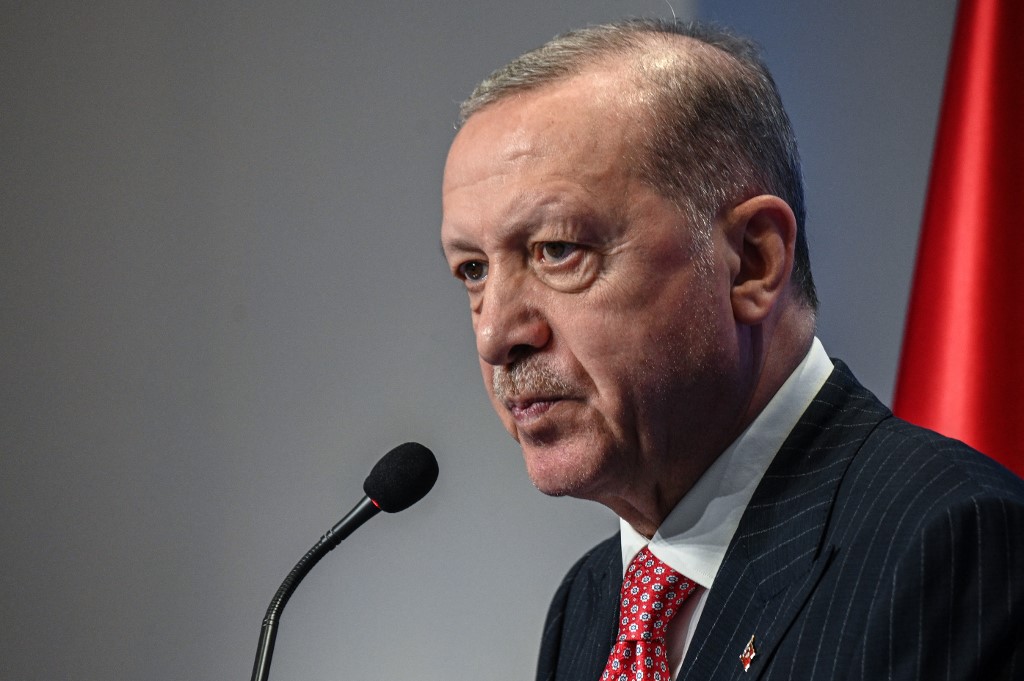Nearly six out of every 10 voters in Turkey have stated that they don’t think President Recep Tayyip Erdoğan can fix the economic woes facing the citizens in the country, with the figure including 8.8 percent of supporters of his ruling Justice and Development Party (AKP).
Özer Sencar, the owner of MetroPOLL, on Friday tweeted the results of his company’s monthly “The Pulse of Turkey” survey for April regarding the Turkish electorate’s opinions on which political figures or parties could fix the country’s increasing economic problems.
Seçmenlerin yaklaşık %60’ı Erdoğan’ın ekonomik sorunları çözebileceğine inanmıyor. pic.twitter.com/0PfCW7ILJ6
— Ozer Sencar (@ozersencar1) May 6, 2022
According to Sencar, while 59 percent of the voters in Turkey said they didn’t think Erdoğan could fix the country’s financial woes, some 39.1 percent argued that the president could do it.
Among those who say Erdoğan isn’t able to solve Turkey’s economic problems are over 90 percent of supporters of each of the main opposition Republican People’s Party (CHP), its ally, the İYİ (Good) Party, and the pro-Kurdish Peoples’ Democratic Party (HDP), in addition to 8.8 percent of AKP voters and 26.3 percent of the supporters of its ally, the Nationalist Movement Party (MHP).
Those who believe Erdoğan could fix economic problems include 89.7 percent of AKP voters and 73.1 percent of MHP voters in addition to less than 10 percent of each of the CHP and İYİ supporters and 6.8 percent of HDP voters.
Survey results posted by Sencar further revealed that 66.2 percent of the Turkish electorate stated that they didn’t believe the AKP government could solve the country’s economic woes until the next elections, scheduled for June 2023, with the figure including 21.5 percent of AKP and 28.2 percent of MHP supporters with over 90 percent of each of the CHP, İYİ and HDP voters.
According to the survey, those who argue opposition parties can’t fix the country’s financial problems make up 53.2 percent of the Turkish electorate, with the figure including 87 percent of AKP, 82.7 percent of MHP, 33.6 percent of HDP, 27.3 percent of İYİ and 18.1 percent of CHP supporters.
Meanwhile, the results of the Turkish Statistical Institute (TurkStat)’s Income and Living Conditions Survey 2021 on Friday revealed that 27.2 percent of the country’s population had lived in severe material deprivation last year.
According to the survey, material deprivation reflects the perception of households about the inability to pay unexpected financial expenses, one week’s annual holiday away from home, mortgage or rent payments, a meal with meat, chicken or fish every second day, keeping the home adequately warm and the ownership of a washing machine, color TV, a telephone and a car.
The severe material deprivation rate defined as the rate of people faced with the enforced inability to afford at least four of the above-mentioned items decreased from 27.4 percent in 2020 to 27.2 percent in 2021, TurkStat said.
The institute’s survey further showed the extent of unequal income distribution in Turkey, with the share of the richest 20 percent of the population – in terms of equivalent household disposable income — in total income being 46.7 percent, while the share of the poorest 20 percent in total income was as low as 6.1 percent in 2021.
Turkish citizens have been facing financial difficulties due to the country’s deteriorating economy amid jacked-up prices, fueled by a currency crisis.
The Inflation Research Group (ENAG), an independent group of academics and economists working on key data that map economic performance, reported an annual inflation rate of 156.86 percent in April – more than double the official figure of 69.97 percent for the same month – posing a huge challenge to Erdoğan, whose unconventional economic policies are often blamed for the economic turmoil.



